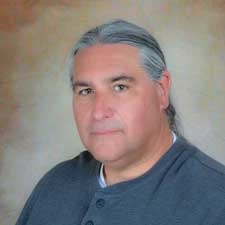Reflect on the Book of Proverbs from the First Nations Version of the Bible and engage Scripture through the voice and cadence of Native storytellers. Hearing the Bible from an Indigenous perspective matters. Creator’s story has always spoken to every people and every land. These devotionals draw from stories of community, wisdom of elders, and the land itself, reminding us that Creator’s hope is given to be shared.
Whoever you are and wherever you come from, you are welcome in this circle. May these readings renew your spirit and remind you that Creator’s hope walks with you wherever you go.
This is part of a series of devotionals for Indigenous Peoples Month written by the Indigenous Ministers Association of The Evangelical Covenant Church. Click here to read more.
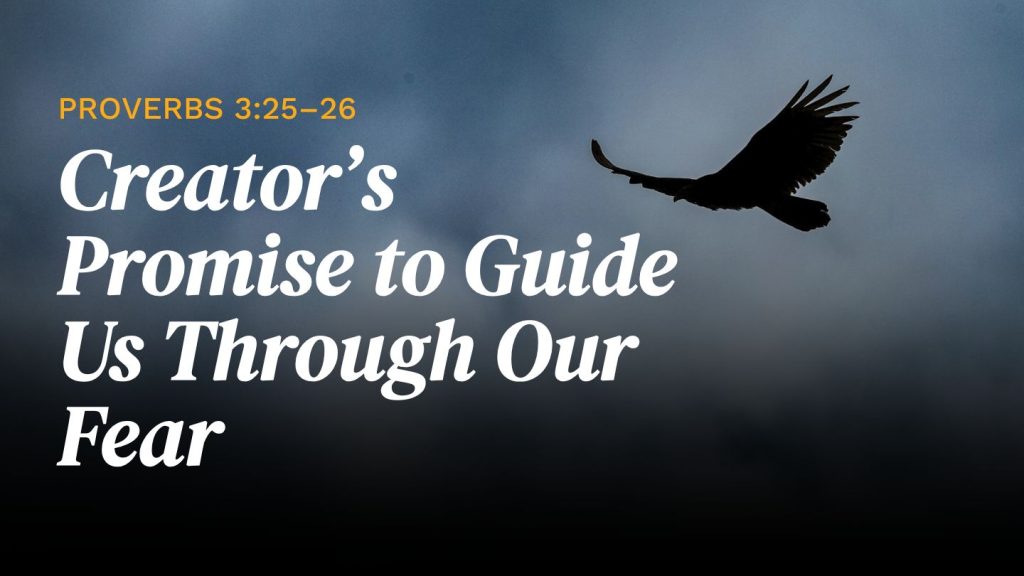
Day One
“Do not live in fear of sudden disaster or the storm that will come on evildoers. For Grandfather will be your courage. He will not let your foot stumble onto an enemy’s trap” (Proverbs 3:25–26, First Nations Version).
As Yakama people we have a virtue called yaych’unakł. This virtue describes being courageous, never giving up, no matter how hard life gets.
Tichám (earth or the land) teaches us courage. Xwayamá (eagle) isn’t afraid of a storm. She just rides the winds. Nusúx (salmon) isn’t intimidated by the waterfall. He keeps jumping and never gives up. Fear is very real for us two-legged beings, but it is not the end of our story. Creator, who made the eagle and salmon, also made us to never give up.
This proverb teaches us to have courage when trouble comes on suddenly. Life is full of storms: sickness, loss, conflict, and broken treaties and promises. Like lightning across the sky, these troubles can appear without warning. The teaching of this proverb is clear: have courage. Why? Because Tamánwiła (Creator) is our courage. Creator is like the strong root of the cedar tree keeping us grounded when the winds roar.
When we follow Creator’s path we avoid life’s traps. Our hunters know where they laid traps in the mountains, so they know where to step and not to step. Creator also knows where the traps of life are and shows us where to step. We are not promised a life without danger or hardship, but Creator does promise to guide us through it all.
Our elders teach us that courage is not the absence of fear but walking forward with trust. That is what this proverb teaches: we walk into each day with courage, not because we are strong enough, but because Creator walks beside us.
When the hard times come—and they will come—remember eagle on the wind. Remember salmon at the waterfall. Take courage that Creator will keep you from stepping into the traps of life.
Prayer
Tamánwiła, Life-Guider, stay beside me on every trail in this life. When the hard times come, give me courage. Guide my steps, safe from traps I can’t see. Give me courage, not fear, and promise me you’ll be right here with me all the way.
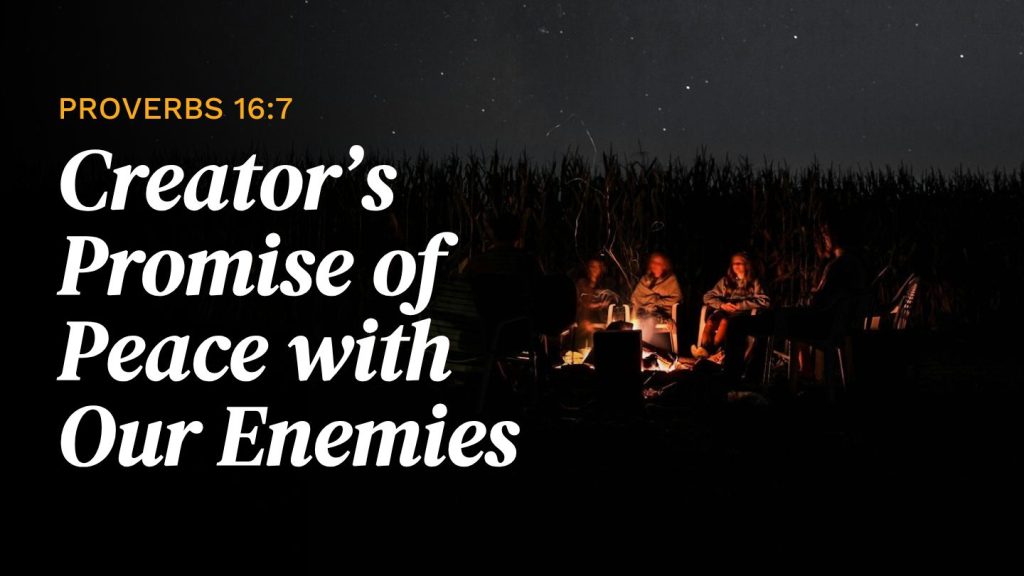
Day Two
“When the ways of human beings please Grandfather, he will even make their enemies to be at peace with them” (Proverbs 16:7, First Nations Version).
Our Yakama people have a virtue called itma’aaksha. This virtue describes being restrained, peaceful, and responsible in order to be in harmony with all people.
In the ways of our people, harmony has always been a sacred teaching. The beat of our drums and the footsteps of our dancers remind us that all life moves together in a sacred circle—like the heartbeat of one family. When we walk in balance with Creator and creation, peace naturally follows.
This proverb tells us that when we walk in a good way, it pleases Creator, and even those who are our enemies will move toward peace with us. This is not something we can make happen. It is something Creator does; changing hearts in the same way Creator changes the seasons.
I once heard this story: There were two warriors from different tribes who met in battle many times. Over time, as one of those warriors lived honorably, showing kindness even to those who didn’t like him, the other eventually put down his weapon. They became friends, and their people learned peace. It was not human pride that brought this change, but Creator’s Spirit working through a life that walked in itma’aaksha.
Walking the path of itma’aaksha doesn’t mean you’re weak. It takes a great deal of strength to remain peaceful when others keep stirring the pot. It takes courage to speak truth with gentleness and to resist the desire for revenge. But when we live in a way that pleases Grandfather, Creator’s Spirit can soften even the hardest heart.
This proverb is a reminder that our greatest power is not in our fists or our mouth, but in walking in a good way with Creator. Creator is the one who can turn our enemies into friends and division into unity. So walk in a good way like one whose footsteps please Grandfather. Don’t seek vengeance or stir up fights, but live your life like dancers who together step in rhythm to the beat of the drum. Then even those who are at war with you may find themselves drawn into the dance circle of peace.
Prayer
Tamánwiła, Creator, Giver of peace, guide our steps so they bring honor to you. Where there is conflict, help us to be people of peace. Soften the hearts of those who hate us, and teach us to walk humbly and in a good way. May our steps in life please you, and may your Spirit turn our enemies into friends.
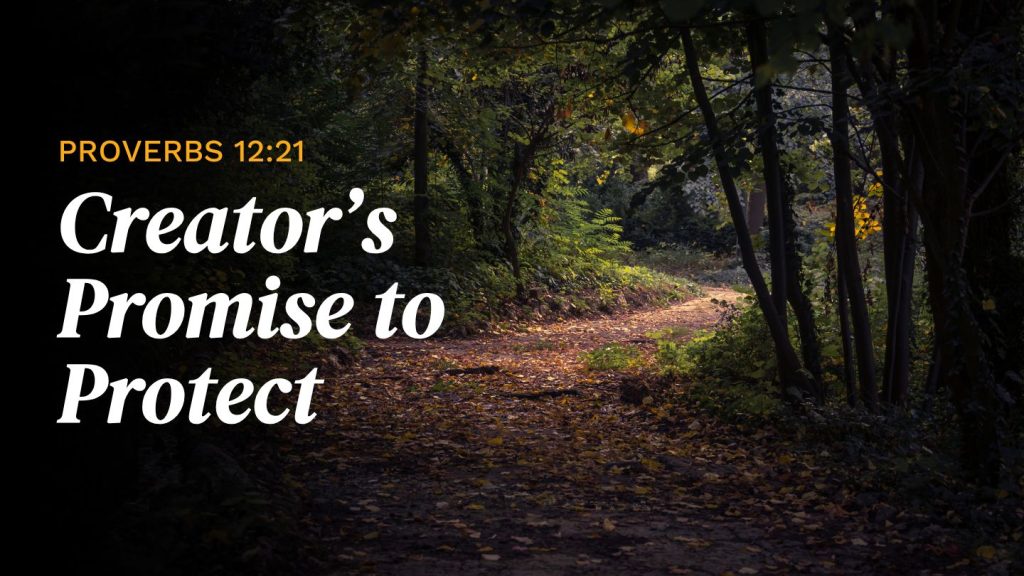
Day Three
“No trouble crosses the path of those with good hearts, but the path that evildoers walk is filled with danger” (Proverbs 12:21, First Nations Version).
Our Yakama people have a virtue called timnak’nik. This virtue describes showing compassion, kindness, and care to others in the way we listen, speak, and help them.
In many of our legends, coyote teaches us through his foolishness how to live and how not to live. Through these stories, we are taught that the path we walk determines the life we live. I’ve been on plenty of trails in the mountains that have led me to a stream of fresh water, but those same trails also had lots of thorns and jagged rocks that could, and often did, trip me up. This proverb speaks the same truth: those who walk in the way of timnak’nik—living in harmony and showing compassion—are protected, while those who turn away from this virtue often stumble into trouble.
When this proverb says, “No trouble crosses the path of those with good hearts,” it doesn’t mean we will never have trouble. Even those strong cedar trees in the mountains feel the weight of a heavy snow, and eagles often fly against fierce winds. Cedar trees stand strong, and eagles soar high because Creator made them strong for times of snow and wind. In the same way, those who walk with good hearts will face hard times, but their spirit will not be broken, and their life will not be blown over by evil.
The next piece of this proverb tells us that an evildoer’s trail is filled with danger. A person who chooses to walk in a spirit of selfishness, deceit, or cruelty will be followed by trouble because they have walked away from the trail of timnak’nik.
Timnak’nik teaches us that living in balance and harmony with all creatures around us brings Creator’s blessings—not just for us as individuals but for our whole community. When a person walks with a good heart, their family, their community, and the earth are touched by that goodness. In the same way, when someone lives badly, it spreads hurt and trouble beyond themselves.
This proverb calls us to choose the good path each day, walk in honesty, live in kindness, share compassion, and trust the teachings Creator has hidden under each leaf and rock. Then even when storms come, we will be safe, and no harm will crush us. Like a fire that keeps you warm on a cold night, timnak’nik will guard your heart and guide your steps.
Prayer
Tamánwiła, Keeper of our lives, thank you for guiding our steps on a good path. When storms beat against us, wrap us up in the cup of your hands. Keep us from harm that destroys our spirits, and help us to walk in compassion. Help us live in a good way with all of creation so that our lives will bring you honor and be a bright light to those around us.
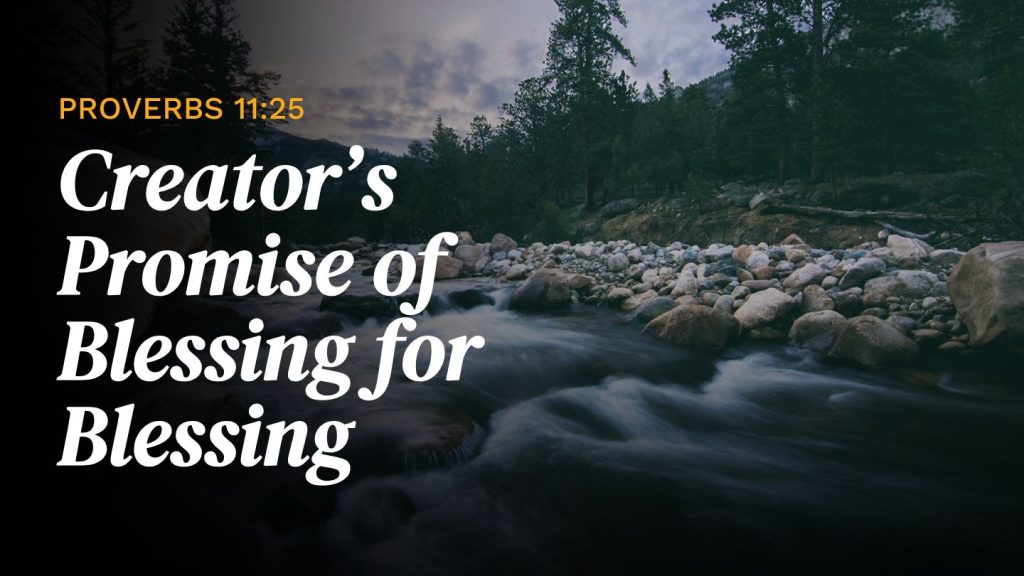
Day Four
“Bless others, and blessing will come back. Those who give a drink of water will be given water to drink” (Proverbs 11:25, First Nations Version).
Our Yakama people have a virtue called wapitat ttawaxt. This virtue describes serving others by offering to help in as many ways as you can think of; to be generous in everything.
As Yakama people, we are taught that all life is a circle. What we give comes back to us, just as rain falls to the earth, rises again as mist, and returns to the sky—only to begin the cycle anew. This proverb teaches the same truth: when we live generously, blessing others, Creator, in turn, blesses us.
Think of Inchi Wana (the Columbia River). She doesn’t drink her own water. Instead, she flows, always quenching the thirst of animals, trees, and people, caring for the salmon and other creatures that live in her waters. In return, Inchi Wana is replenished by rain and snow from the mountains. In this way Creator shows us that giving and receiving are woven together. When we are generous, we are shown generosity. It is simply the way of life—the law of Creator.
Our elders often remind us that generosity is a sign of strength. Our leaders were often poorer, in no small part because of their generosity. That was good leadership. If a leader hoards their stuff, it brings shame to them and their family. But one who is generous brings honor to themselves and their family. This proverb teaches the same truth: those who are generous toward others will find themselves receiving generosity, not only in material things but in joy, peace, and friendship.
The way of selfishness leads only to emptiness. Like a stagnant pond that grows stinky, so a life that is stingy turns foul. But a life that pours out kindness and blessing is like Inchi Wana—fresh, life-giving, and continually replenished.
In our families and communities a grandma who gives her time and wisdom to her grandchildren receives joy and honor in return. A young person who serves their elders with respect finds strength and blessing for the journey ahead. Each act of giving is like planting a seed that will one day bear fruit.
Walk this day with open hands. Share your words to encourage, your time to serve, your gifts to bless. Creator watches over the generous and promises to give water to those who give water to others.
Prayer
Tamánwiła, Giver of every good gift, teach me to walk with an open hand. Teach me to give water to the thirsty, food to the hungry, and kindness to the weary. As I am generous to others, be generous to me, so that my life may flow like Inchi Wana, which never runs dry.
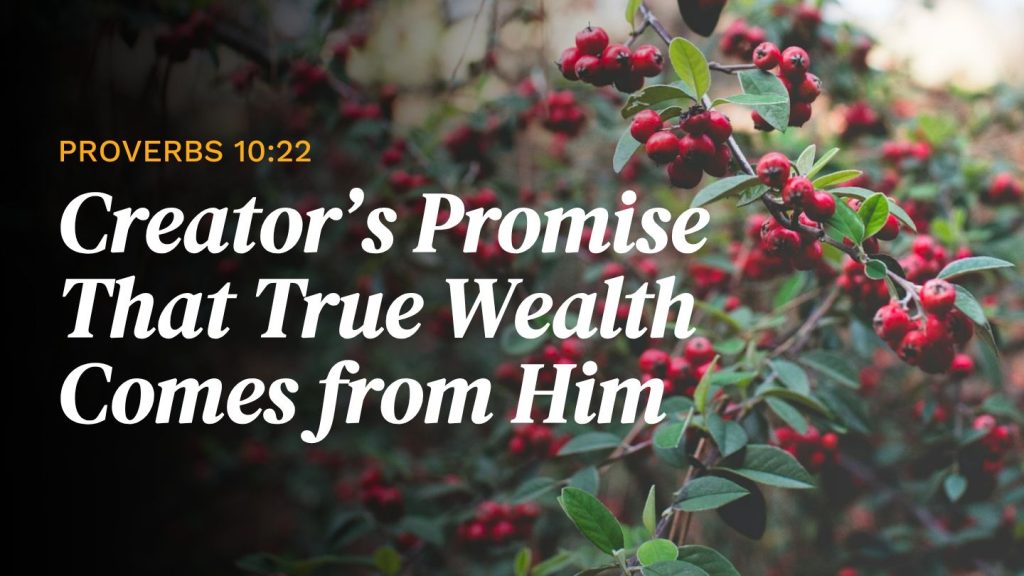
Day Five
“It is Grandfather’s blessing that makes one rich. He adds no sorrow to it” (Proverbs 10:22, First Nations Version).
Our Yakama people have a virtue called ataw pina shuukt. This virtue describes knowing who we are—knowing our family tree, our ancestors, and the gifts of love and life left to us as their descendants.
Among our people, wealth is never measured by how much stuff we have but is found in the gifts Creator gives us: the laughter of children, the strength of our families and ancestors, the gifts of earth, and the peace of a good heart. This proverb tells us that when blessings come from Creator, they bring real wealth without the heavy weight of sorrow that can be tied to stuff.
There are two kinds of wealth. One is gained by striving, grasping, and chasing after more. But like someone who gathers water in a leaky, cedar bark basket, no matter how much they collect, it always slips away. This kind of wealth often brings worry, jealousy, or even loneliness. The other kind of wealth comes as a gift from Creator—freely given, not earned. The gifts of our families, our lineage, knowing who we are as a people, and who Creator made us to be are the gifts that bring real happiness.
I think of our huckleberry bushes in late summer. No one commands them to bear fruit; they do it because that’s what Creator made them to do. The huckleberries nourish all—bird, bear, and human alike. So it is with Creator’s blessings: they are given to us freely, and when they come, no sadness clings to them—only gratitude and peace.
Our elders teach us that when Creator blesses us, the gift is meant to be shared. When our young men get their first kill when hunting, they don’t bring the meat home for themselves; rather, they have a feast with the community. Everything is given away—even the gun the hunter used, because it’s not about him. It’s about learning what it is to be a man—to provide for the people. In this way, the blessing of Creator strengthens the whole community.
This proverb teaches us to seek a blessing that lasts. Work is good, and effort has its place, but do not chase after stuff. Instead, look for Creator to provide. Creator’s wealth will always bring life, peace, and joy.
Be thankful for the blessings already in your hands—the breath you breathe, the family beside you and your family lineage, the sacred foods and earth beneath your feet. These are the riches of Creator, and with them comes no sadness.
Prayer
Tamánwiła, Giver of every good gift, teach us to see wealth in the blessings you provide. Help us not to chase after empty stuff, but to be happy with the gifts of life, family, lineage, our people, our sacred foods, love, and peace.
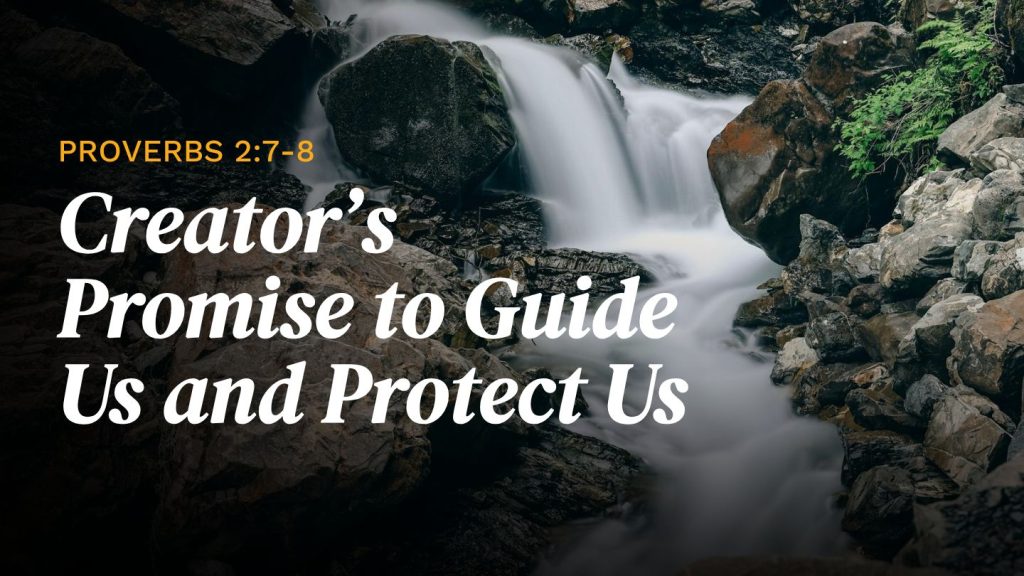
Day Six
“He stores up good things for the ones who stand tall and true. Grandfather is a medicine shield to those who walk with firm steps on the road of life. He watches over the path of those who bring harmony and balance and keeps his sacred followers safe from harm as they walk the road of life” (Proverbs 2:7-8, First Nations Version).
On our reservation in south central Washington State is an area we call Mool Mool. Non-Natives call it Ft. Simcoe. At first glance, this place might look like a desert. It is so dry and rocky. There could not possibly be any water there. But for those of us who know better, there are four natural springs that give life to that land. It is even found in the word Mool Mool, which describes the bubbling of the springs.
Wisdom (Good Things) is a lot like this. At first glance, the land may look dry, but if you know where to look, you can find cool water bubbling from the earth. In the same way, Creator gives good things to those who bring harmony and balance in their interactions with others and the world around them.
In this translation, the proverb compares Creator to a medicine shield. Among our people, the shield was used not only for tangible protection, but it was also painted with sacred images given by Creator to remind us that we do not stand alone. To walk with firm steps (integrity) is to carry such a shield—made not of wood and hide but of Creator’s own power. Creator guards those who walk a good path.
This proverb also tells us that Creator “watches over the path of those who bring harmony and balance.” The trail of harmony and balance, ironically, is not always smooth. At times, it winds through steep valleys of conflict or over rocky hills of misunderstanding. But when we walk this trail, Creator promises to watch over us like a mother watching over her children at a playground or a momma bear keeping a close eye on her cubs.
This call for us to walk in harmony and balance is not given to the careless or the deceitful but to those whose hearts are true. When we walk in harmony and balance with all things, we find ourselves under Creator’s protection. Creator places a shield over us and guides our steps along a life-giving trail.
Be courageous today. Seek to walk in harmony and balance even when others choose a bad way. The One who made the earth and sky promises to protect you like a medicine shield and to lead you safely along the road of life. And Creator doesn’t break promises.
Prayer
Creator of earth and sky, be our medicine shield on the trail of life. Guide our steps when the way is dark and we cannot see. Help us to walk in balance and harmony with all things so that our journey honors you and brings blessings to others.
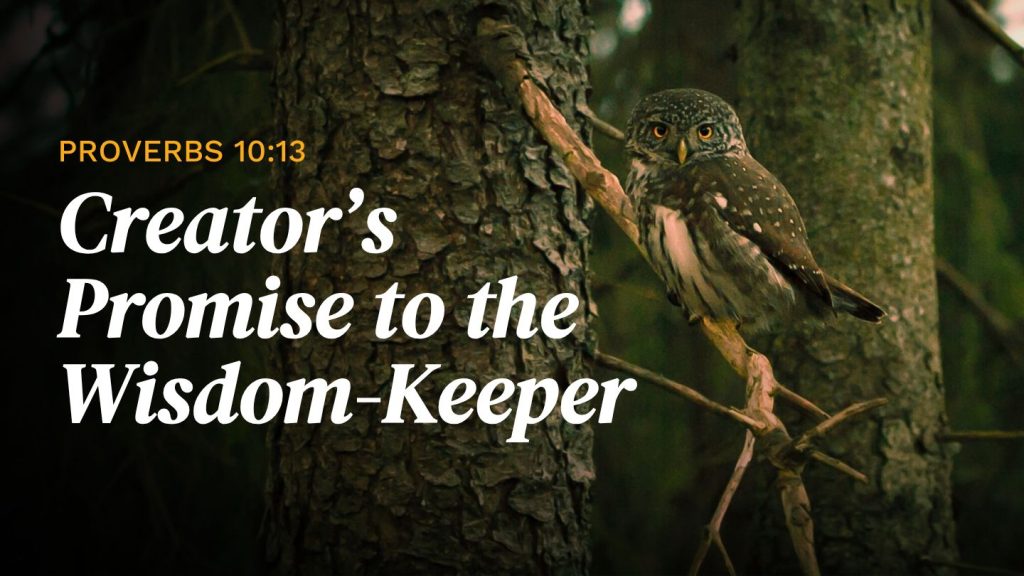
Day Seven
“Wisdom is found on the lips of a wisdomkeeper, but bruises are found on the backs of those with no desire to learn” (Proverbs 10:13, First Nations Version).
Among our Yakama people we are taught not to throw words around carelessly but to carry the virtue of tma’aakni (respect). This virtue teaches us to keep a spirit of harmony and cooperation with all people.
In this teaching we learn that words carry power. They are like arrows; once released they cannot be taken back. In this proverb we are taught that when it is wisdom that fills our heart, then it is wisdom that spills out from our mouths. When a person lacks wisdom, they bring harm upon themselves and to those around them in the same way that a careless hand touching a hot stove gets burned.
I think of the times I’ve heard elders speak at community events. When an elder speaks, people listen. Their words are few, but each one carries weight. Their words often bring peace, direction, and healing. This is what it means to have wisdom on one’s lips—words that build up, guide, and protect.
We live in a dry area where there are a lot of wildfires in the summer. One flick of a cigarette out of a car window can set the mountains ablaze! Thoughtless words are similar—one bad word to someone else can bring so much destruction.
This proverb teaches us that those who don’t have a desire to learn, who ignore wisdom and the teachings of our elders, and who speak without care bring a beating down upon themselves. Just as a young person learns by correction, so the foolish eventually feel the rod of their own choices.
Creator has put these lessons in the world around us. When a river follows its course, it brings life and beauty, but when it overflows recklessly, it causes destruction. Words are like that. If they are spoken out of a heart filled with wisdom, they bring life. If words are spoken out of a heart filled with carelessness and lack of wisdom, they bring harm and destruction.
I hope we will seek understanding from Creator and listen to our elders, so that our hearts may be filled with good things that spill out from our lips. Speak with gentleness and truth. Listen and learn as much as you can with humility in your heart. Then your words will give life to others like water gives life to a thirsty plant.
Choose your words with care today. Fill your heart with wisdom by listening to your elders and to Creator. Then what comes from our mouths will be a blessing to others, guiding them on a good path.
Prayer
Tamánwiła, place understanding in our hearts so wisdom will flow from our lips. Keep us from careless words, and let what we speak bring life, peace, and truth.



